In this edition of “I Wake Up Streaming,” novelist William Boyle rounds up his top streaming picks for the month of December. The column’s name is a play on the 1941 film I Wake Up Screaming, starring Betty Grable, Victor Mature, and Carole Landis. While the film’s title hits a pleasing note of terror and despair, changing that one letter speaks to the joy of discovering new films and rediscovering old favorites, as well as the panic that comes with being overwhelmed by options.
Saturday Night Fever and Staying Alive (Prime Video)
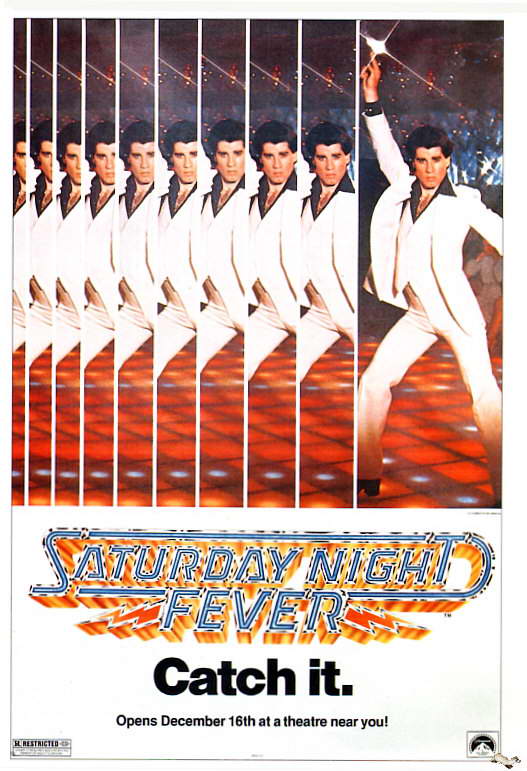
When John Travolta struts up Eighty-Sixth Street as Tony Manero at the beginning of Saturday Night Fever, stopping at the window of Lenny’s Pizza for two slices and then proceeding to eat them folded together as he continues to strut, he’s about a ten-minute walk from the block in southern Brooklyn where I grew up and where my mom still lives. For a kid from the neighborhood who loved movies, Saturday Night Fever seemed to hang over everything. I avoided it until I was probably fourteen or fifteen, going to high school a couple of neighborhoods away in Bay Ridge, where the action is primarily set. There was a kid I rode the bus to high school with who used to—fairly often, in my memory—dress up as Tony. Like many folks before they actually watch the movie, I knew the songs. The Bee-Gees. Disco. It can all be looked on now with some nostalgia, but it’s hard to imagine just how dead and distant that era seemed in the ’90s. Still, the movie’s reputation lingered. I was into Scorsese and Coppola and took a dim view of this movie I hadn’t seen, expecting—I don’t know—a lighthearted romp through the disco scene of late ’70s Bay Ridge. It’s difficult to duplicate the experience of that revelatory first viewing. I’m sure many people have gone through the same thing. It’s not long before the movie reveals itself as dark and troubling. A character study and a story of place that’s shot through with various types of awful behavior: sexual assault, misogyny, racism, homophobia, general meanness, and ignorance. In that way (and others), it’s an accurate portrait of the neighborhood as it was. Disco happens to play a part, sure, but like all scene movies that endure, it’s driven by the characters and sense of place. There’s hardly a “likeable” character to be found and yet every frame is compelling. Imagine that. I love the movie—it’s been a huge influence on my own writing—and it’s deeply important to me, as both a Brooklyn movie and an artifact of Golden Age ’70s cinema. It’s just popped up on Prime Video, and my most recent rewatch—about thirty years removed from my first viewing—felt as fresh and vital as ever.
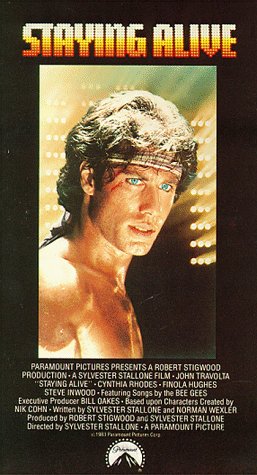
Also on Prime Video is the lesser-seen and widely disregarded sequel, Staying Alive. Directed by Sylvester Stallone (in Saturday Night Fever, Tony has a Rocky poster on his bedroom wall) in his montage-heavy ’80s style, it doesn’t come close to the original, but it’s a sweat-soaked headbanded neon fever dream that happens to be a lot of fun. Tony has left Brooklyn for Manhattan, where he’s auditioning for a dance musical (?) of some kind called Satan’s Alley and involved in what develops into a love triangle with the lead dancer, Laura (Finola Hughes), and his deeply devoted and loyal pal, Jackie (Cynthia Rhodes). Stallone was clearly gunning for All That Jazz but lands closer to Showgirls. The picture comes out of the gate like a mozzarella wrecking ball and doesn’t let up. I wish I could’ve somehow witnessed the Sly and Norman Wexler writing sessions, especially as they conceptualized Satan’s Alley. Apart from that, the highlights remain the lone scene when Tony goes back to Brooklyn to visit his mom (Julie Bovasso, a standout in the first movie) and Tony roasting Frank Stallone’s Carl. Sly sands away the ’70s rawness that made Saturday Night Fever so special and replaces it with his shiny brand of weirdo, fitness-obsessed ’80s PG fantasia. Simultaneously atrocious and absorbing.
If anybody’s listening, I’ve got an idea for a third installment in the series. It’ll be called The Future Fucks You (a line that the paint shop owner whom Tony works for in Saturday Night Fever says in response to Tony uttering “Fuck the future”). In the film, it’s 2022, and Tony is now sixty-four, bald and bearded and heavy, living back in Bay Ridge in his childhood house, and he’s married to Donna Pescow’s Annette. Everybody he loved is either dead or gone to Jersey. The neighborhood’s changing. A few of the old places remain. Tony haunts them. He’s got a dive bar he frequents where he occasionally drinks a little too much Sambuca and shows off some of his moves in the narrow confines of the grungy joint, making a spectacle of himself. At home, Annette’s dying. Tony spends most of his time dealing with insurance and medication and nurses. The money’s running out. The hope is running out. That’s all I’ve got so far. It’ll be a dark and dreary affair, the soundtrack comprised of slow, monotone, suicide versions of all the classic Bee Gees songs.
Me and My Gal (Criterion Channel)
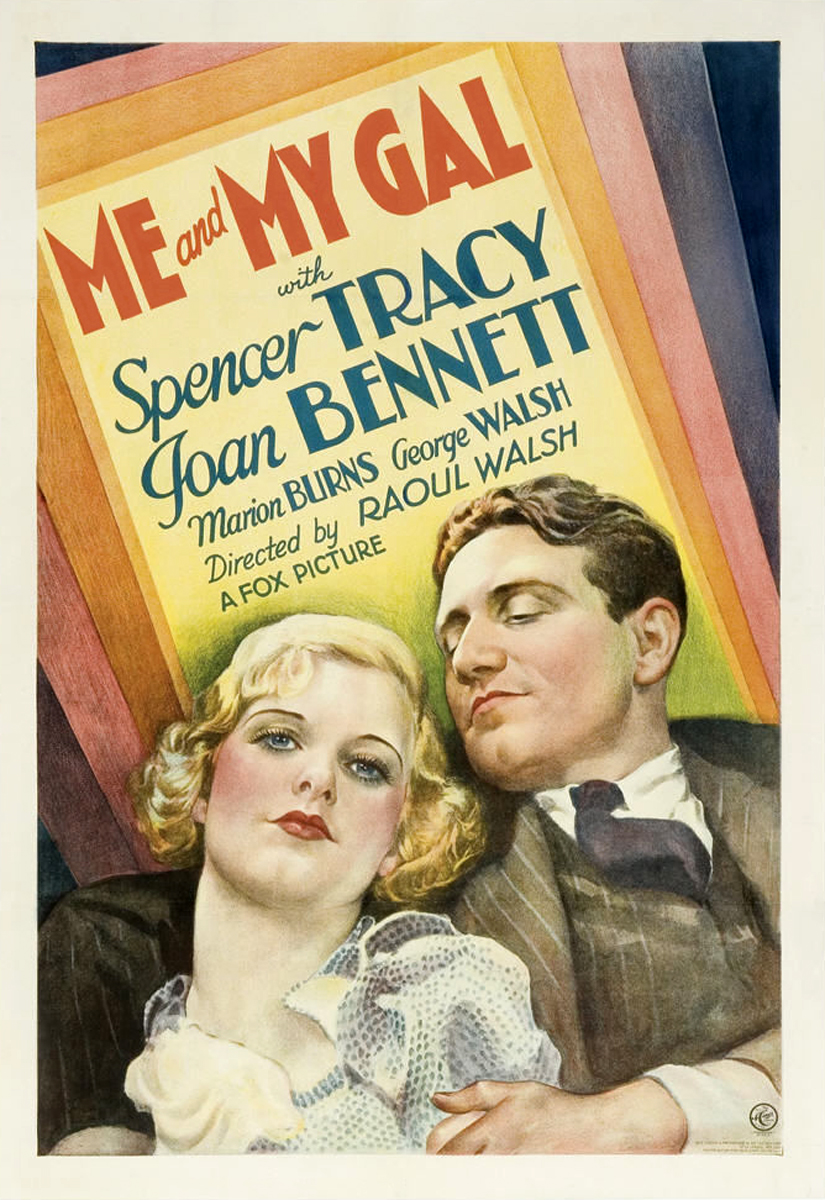
Like all my favorite pre-Code movies, Raoul Walsh’s Me and My Gal (1932) is tonally all over the place. A little bit of slapstick, a little screwball, some romantic comedy, part gangster picture, a jailbreak and a heist thrown in for good measure. Bawdy and rollicking. I laughed more than I’ve laughed at anything else lately. Spencer Tracy is terrific as a young New York City beat cop named Danny Dolan, who patrols the waterfront and falls for a gum-smacking diner cashier named Helen played by Joan Bennett. (By the way, it seems like Jennifer Jason Leigh nabbed her whole schtick in Robert Altman’s Kansas City from Bennett here). Drunks and gangsters roam through the narrative. There’s a looseness and easiness to the film, which always centers the developing romance between Danny and Helen but isn’t afraid to take detours in the name of gags or tension. A killer supporting cast that includes Marion Burns, George Walsh, and J. Farrell McDonald. Seventy-nine perfect minutes. So much damn joy. Will be quoting from this one—and revisiting it—a lot.
As I Was Moving Ahead Occasionally I Saw Brief Glimpses of Beauty (YouTube)
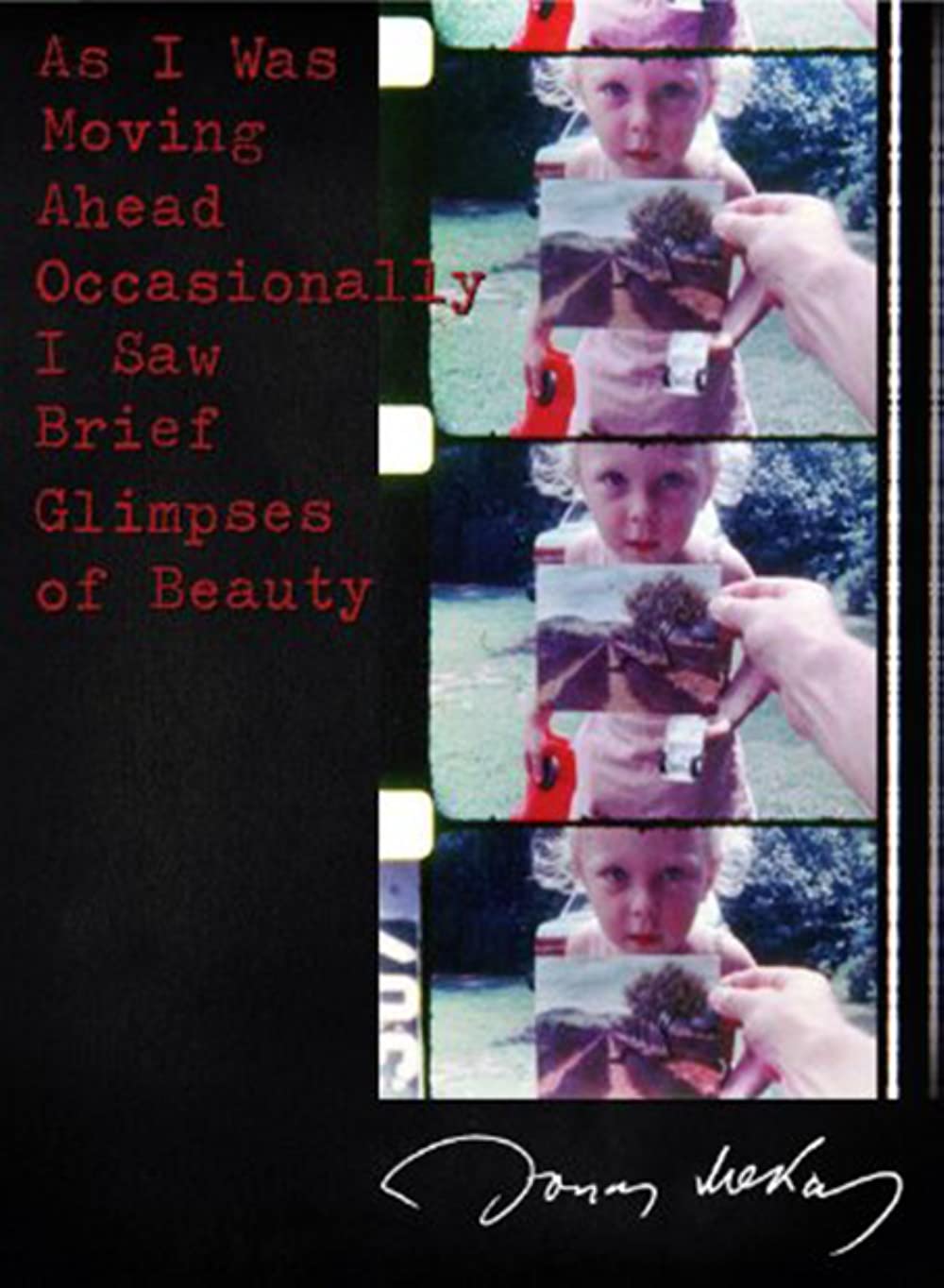
I’ve known of Jonas Mekas forever, but I’ve never watched any of his movies until now. Just seen bits and pieces here and there. This was included on the top ten list of a film writer I admire for her Sight and Sound poll. I loved the title and it’s available on YouTube, so I started watching, not sure I’d be able to make it all the way through. But I was immediately absorbed and immersed. It’s a collection of home videos and recorded sounds and commentary by Mekas stitched together out of sequence into an ethereal memory piece that falls somewhere on the continuum between Walt Whitman’s Song of Myself and Joe Brainard’s I Remember. Tunneling deep into images to make sense of a life. An incredible New York City movie. A lost world. Many lost worlds and faded days. Wind in trees. Nursing babies. Snowstorms. Rainstorms. Kids learning to walk. Waves. Ice. Seasons. Dancing. Drinking. Fellowship. Cats. Cars. Church. Neon. The Italian feast on Sullivan Street. Full of unforgettable images and Mekas’s profound wisdom. It’s like living in someone’s memories for five hours. Astounding, ecstatic, searching, transcendent.
Jeanne Eagels (YouTube)
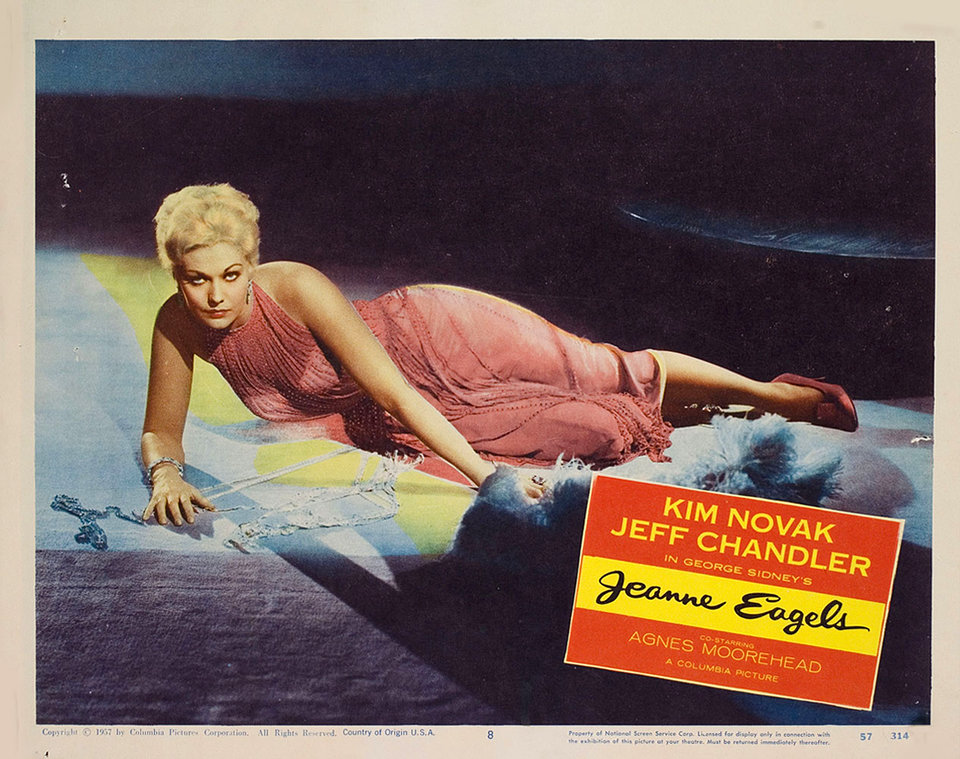
This 1957 biopic was on my radar because two of my favorite novelists-turned-screenwriters, Daniel Fuchs and John Fante, wrote the screenplay (along with the great Sonya Levien, who also had her roots as a fiction writer), and Fuchs is credited with the story. It apparently fell under fire at the time of its release because it’s highly fictionalized. In any case, Kim Novak is ethereal and enchanting and flat-out electric to watch as Jeanne Eagels. Eagels was a Kansas City girl who worked in a traveling theater show and as a Ziegfield Girl in the early part of the twentieth century before breaking through on Broadway and having some success in films. She died young, at thirty-nine. The movie changes her backstory a bit—she works for a carnival and takes up with the owner, Sal Satori (Jeff Chandler). Sal’s got a brother in New York, and they wind up in Coney Island, where Sal runs an amusement park and Jeanne pursues acting in the city. (I’m assuming the heavy infusion of Coney Island and Brighton Beach comes from Fuchs, who was a Brooklyn boy and had written several acclaimed novels about the Jewish experience in New York City before decamping for Hollywood). The Jeanne of the movie is conniving and single-minded, but Novak plays her with such tenderness that the edges are softened. There are some sequences and shots here I won’t soon forget—Novak on the beach, Novak in front of a fan in a hot room, all the killer Coney Island stuff, the production of Rain, a Frank Borzage cameo. Many of the older reviews I’ve read knock the script (I think it’s good) and knock Brooklyn native Chandler as Sal (I really liked him). It’s essentially a riff on the classic A Star Is Born formula with some good variations—Sal isn’t holding Jeanne back (he remains supportive throughout), and she’s very much in control of her own destiny.
On the Run (YouTube)
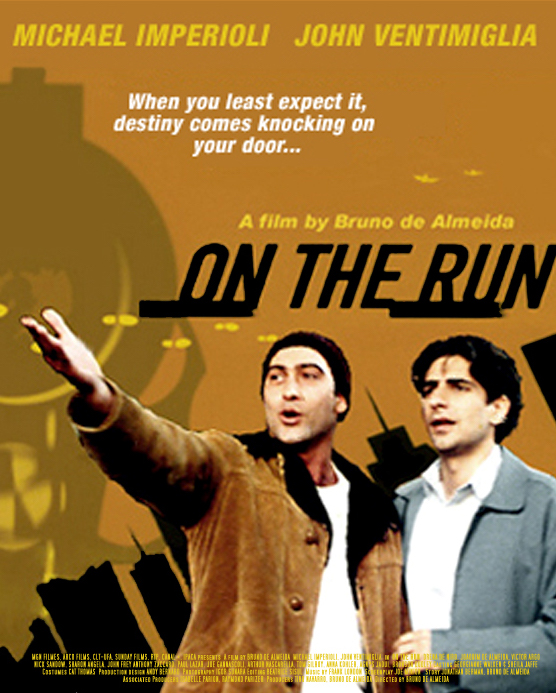
I’ve been wanting to see Bruno de Almeida’s On the Run for a long time and just recently discovered it’s on YouTube. A lost late ’90s NYC gem starring about half the cast of The Sopranos and written by Joseph Minion (After Hours, Vampire’s Kiss, Motorama). John Ventimiglia plays Louie, a guy who has escaped from prison upstate with two weeks left on a five-year sentence and come down to the city on a bus looking for his old pal, Michael Imperioli’s Albert, a square dude who lives alone and works at a travel agency and reads self-help books. Once they hook up, the night unravels quickly, with Louie leading Albert into a series of bad situations. One of my favorite kinds of movies. Characters zooming around the city like they’re in a pinball machine. Encounters with wild minor characters (played by Drena De Niro, Nick Sandow, Victor Argo, Sharon Angela, Joseph R. Gannascoli, and Suzanne Shepherd). People screaming and making dumb decisions. Chest hair. A nice dose of screwball comedy. Great dialogue. Laughed a ton. Imperioli is particularly hilarious—so many wonderful line deliveries.
William Boyle is the author of the novels Gravesend, The Lonely Witness, A Friend Is a Gift You Give Yourself, City of Margins, and Shoot the Moonlight Out, all available from Pegasus Crime. His novella Everything Is Broken was published in Southwest Review Volume 104, numbers 1–4. His website is williammichaelboyle.com.
